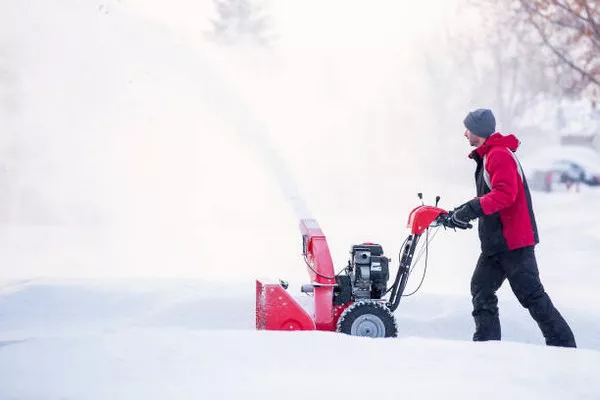As the winter season approaches, it’s essential to ensure that your snowblower is in prime working condition. One crucial aspect of snowblower maintenance often overlooked is selecting the right type of oil. The oil you use can significantly impact your snowblower’s performance and longevity. In this comprehensive guide, we will explore the various types of oil suitable for snowblowers and provide insights into how to make the best choice for your specific machine.
Why Choosing the Right Oil Matters
Before delving into the types of oil, let’s first understand why selecting the correct oil for your snowblower is crucial. Snowblowers, like all internal combustion engines, rely on oil to lubricate moving parts, reduce friction, and dissipate heat. The right oil helps protect the engine from wear and tear, ensuring that it operates smoothly in cold temperatures.
Choosing the wrong oil, or neglecting to change it regularly, can lead to several issues:
Reduced Performance: Inadequate lubrication can lead to increased friction, causing the engine to work harder and reduce overall performance.
Engine Damage: Using the wrong type of oil can cause engine damage or premature wear and tear, leading to costly repairs or replacement.
Cold-Weather Starting Issues: Winter weather can be harsh, and the wrong oil can make it difficult for your snowblower to start in cold temperatures.
Now that we understand the importance of selecting the right oil, let’s explore the different types of oil suitable for snowblowers.
Types of Oil for Snowblowers
There are primarily two types of oil to consider for your snowblower: single-weight and multi-weight oil. The choice between the two depends on your snowblower’s engine type and your local climate.
Single-Weight Oil:
Single-weight oil, often referred to as SAE 30, is a common choice for smaller, single-cylinder snowblower engines. It is a straight-weight oil with a consistent viscosity rating. This type of oil is ideal for use in warmer climates or when the temperature consistently stays above freezing.
Advantages of SAE 30 oil:
- Provides excellent lubrication for single-cylinder engines.
- Simplicity and cost-effectiveness.
Disadvantages of SAE 30 oil:
- Not suitable for extremely cold weather conditions.
- Limited versatility in temperature range.
Multi-Weight Oil:
Multi-weight oil, typically labeled as 5W-30 or 10W-30, is a more versatile option suitable for a wider range of climates. The “W” in the label stands for “winter,” indicating that this oil can perform well in cold temperatures.
Advantages of multi-weight oil:
- Suitable for a broad temperature range, making it ideal for areas with unpredictable weather.
- Provides good cold-weather starting performance.
- Suitable for both single-cylinder and multi-cylinder engines.
Disadvantages of multi-weight oil:
Slightly more expensive than single-weight oil.
Choosing the Right Oil for Your Snowblower
Selecting the right oil for your snowblower involves considering several factors, including your local climate, the type of engine in your snowblower, and the manufacturer’s recommendations. Here’s a step-by-step guide to help you make an informed decision:
Check the Owner’s Manual:Start by consulting your snowblower’s owner’s manual. The manufacturer typically provides recommendations for the type and viscosity of oil to use. Following these guidelines ensures that your snowblower operates optimally.
Consider Local Climate: Your local climate plays a crucial role in determining the type of oil you should use. If you live in an area with extremely cold winters, a multi-weight oil with a lower “W” rating (e.g., 5W-30) is a better choice, as it ensures easy starting in frigid temperatures. Conversely, if you reside in a milder climate, SAE 30 oil may suffice.
Engine Type: Determine whether your snowblower has a single-cylinder or multi-cylinder engine. Single-cylinder engines may perform well with SAE 30 oil, while multi-cylinder engines often benefit from the versatility of multi-weight oil.
Oil Quality: Ensure that you select a high-quality oil from a reputable manufacturer. Quality oils contain additives that provide superior protection against engine wear and corrosion.
Change Oil Regularly: Regardless of the oil type you choose, it’s essential to change the oil regularly according to the manufacturer’s recommendations. Used oil can become contaminated and lose its lubricating properties, potentially harming your engine.
Consider Synthetic Oil: Some snowblower owners opt for synthetic oils, which offer enhanced performance and protection. Synthetic oils have better cold-flow properties and can provide more extended engine life, making them a viable option for extreme climates or those seeking the best possible performance.
Additional Tips for Snowblower Maintenance
While selecting the right oil is crucial for your snowblower’s performance, proper maintenance goes beyond just the oil change. Here are some additional tips to keep your snowblower running smoothly:
Inspect the Spark Plug: Check and clean or replace the spark plug as needed. A clean spark plug is essential for efficient combustion and reliable starting.
Fuel Quality: Use fresh, clean fuel with the appropriate octane rating. Consider using a fuel stabilizer if your snowblower will sit idle for an extended period.
Check Belts and Auger: Inspect the belts and auger for wear and proper tension. Replace any damaged or worn parts to maintain performance.
Clean the Carburetor: If you experience performance issues, cleaning the carburetor can often resolve problems related to fuel delivery.
Store Properly: When the snow season is over, store your snowblower properly. Drain the fuel or use a fuel stabilizer, and store the machine in a dry, sheltered area to prevent rust and corrosion.
Conclusion
Selecting the right oil for your snowblower is a crucial step in ensuring its optimal performance and longevity. Consider your local climate, the type of engine, and the manufacturer’s recommendations when making your choice. Regular maintenance, including oil changes, spark plug inspection, and belt checks, will keep your snowblower running smoothly, ensuring that it’s ready to tackle even the heaviest winter snowfalls. By following these guidelines, you can enjoy reliable and efficient snow removal year after year.

